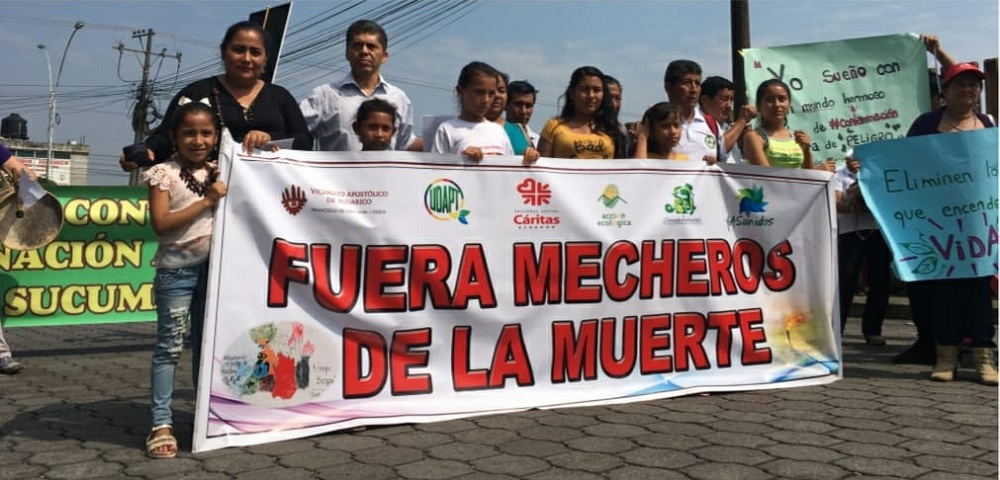
- Sustainable Planet -
- 5mins -
- 366 views
Ecuadorian court sides with nine schoolgirls and orders end to gas flaring by oil industry in Amazon
The Provincial Court of Justice of Sucumbíos declared that the Ecuadorian state ignored the right of nine girls to live in a healthy environment and that it violated their right to health by not providing clean technologies that prevent pollution.
9 Schoolgirls win landmark case against oil industry
Nine girls, aged between 7-14, have made legal history in Ecuador after suing the government over the pollution and climate impacts of oil industry flaring in the Ecuadorian Amazon. The court ruled in favour of the girls, who demanded an immediate end to all gas flares in their villages. The judges also noted that eliminating flaring would cut Ecuador’s greenhouse gas emissions by at least 24%.
“I’m very happy because, finally, justice has been served. We’re going to restore nature, for all the sick children, for the people, for the parents who have fought to stay healthy, for the families that have also kept fighting if only to grow a few crops, for the families who live under the flares and have had to abandon their land.” said 10-year-old Leonela Moncayo upon hearing the ruling. — FutureCrunch
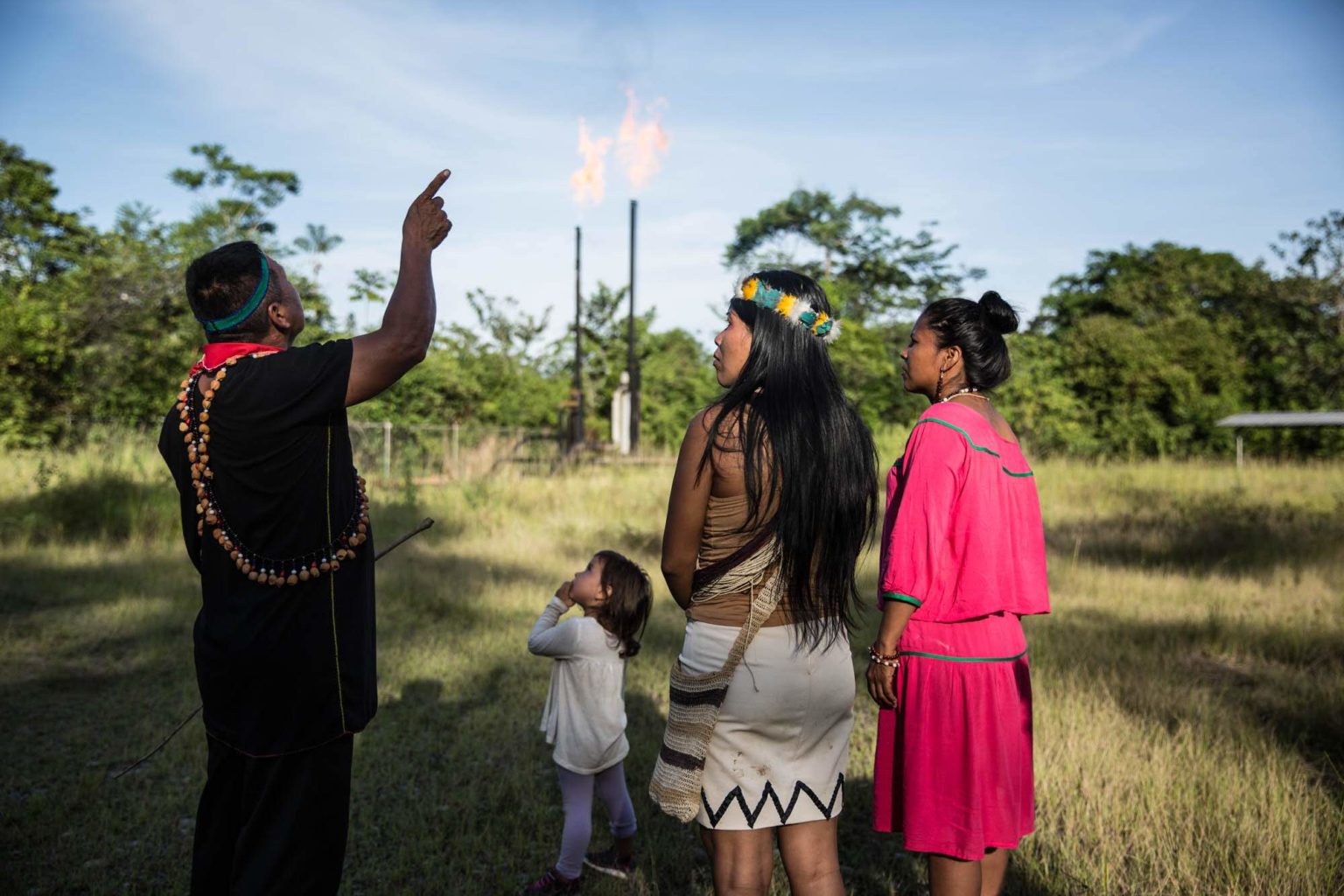
the flares have been burning natural gas — a by-product of oil extraction — since 1967
On Jan. 26, 2021, a court in Ecuador had ruled in favor of nine schoolgirls who had demanded the elimination of flaring by the oil industry to burn off natural gas in the Amazon, particularly in the provinces of Sucumbíos and Orellana.
At an average temperature of 400° Celsius (750° Fahrenheit), the flares have been burning natural gas, a by-product of oil extraction, since Chevron-Texaco drilled the area’s first commercial well in 1967. The plaintiffs said their relatives and friends had developed health problems, including cancer, due to the air pollution caused by flaring, and that some had even died.
A 2017 study by Clínica Ambiental, a project of the Centre of Studies and Social Action (CEAS), and the NGO Acción Ecológica indicates that there were higher incidences of cancer in the population of the Ecuadoran Amazon that lives near the areas where Chevron-Texaco operated and where oil facilities, and flares, are found.
Pablo Fajardo, a lawyer who represents the girls and the Union of People Affected by Texaco (UDAPT), says that UDAPT and Clínica Ambiental spent two years compiling records of cancer cases in Sucumbíos and Orellana. They documented 251 such cases, with women accounting for 71% of them.
“These girls who today were petitioners could tomorrow be victims of cancer,” Fajardo said.
Source: Mongabay
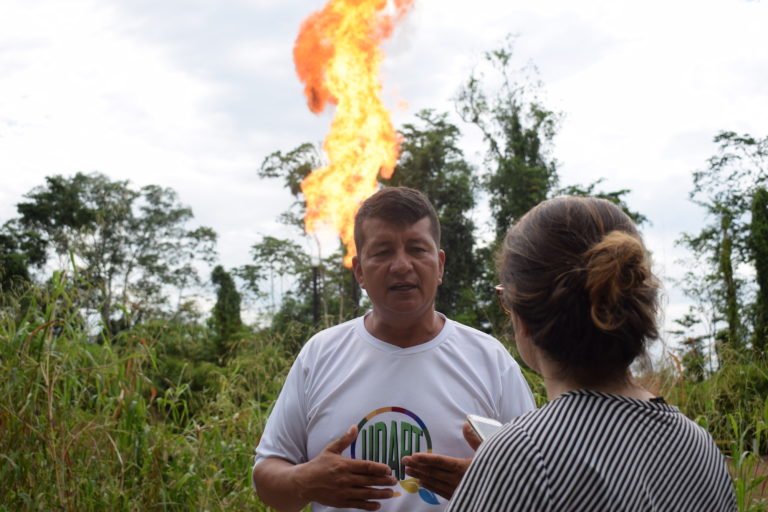
Court rules girls have a right to live in a healthy and ecologically balanced environment
On Feb. 20, 2020, the girls had filed an injunction against the Ecuadoran Ministry of Energy and Non-Renewable Natural Resources and the Ministry of Environment and Water, arguing that the impact of the flares violated their rights to water, health, food sovereignty, and a healthy and ecologically balanced environment. They said the flares had negatively impacted the health of residents, contaminating the rainwater that was their only source of clean water.
However, the injunction was denied, so the girls filed an appeal which was postponed five times. Finally, the Jan. 26, 2021, ruling agreed with the petition laid out by the girls and their attorneys, saying, “the Ecuadoran State has ignored the right of the petitioners to live in a healthy and ecologically balanced environment, disregarding their right to health with polluting activity, by not providing or promoting the use of environmentally clean technologies and non-polluting, low-impact forms of energy.”
Source: Mongabay
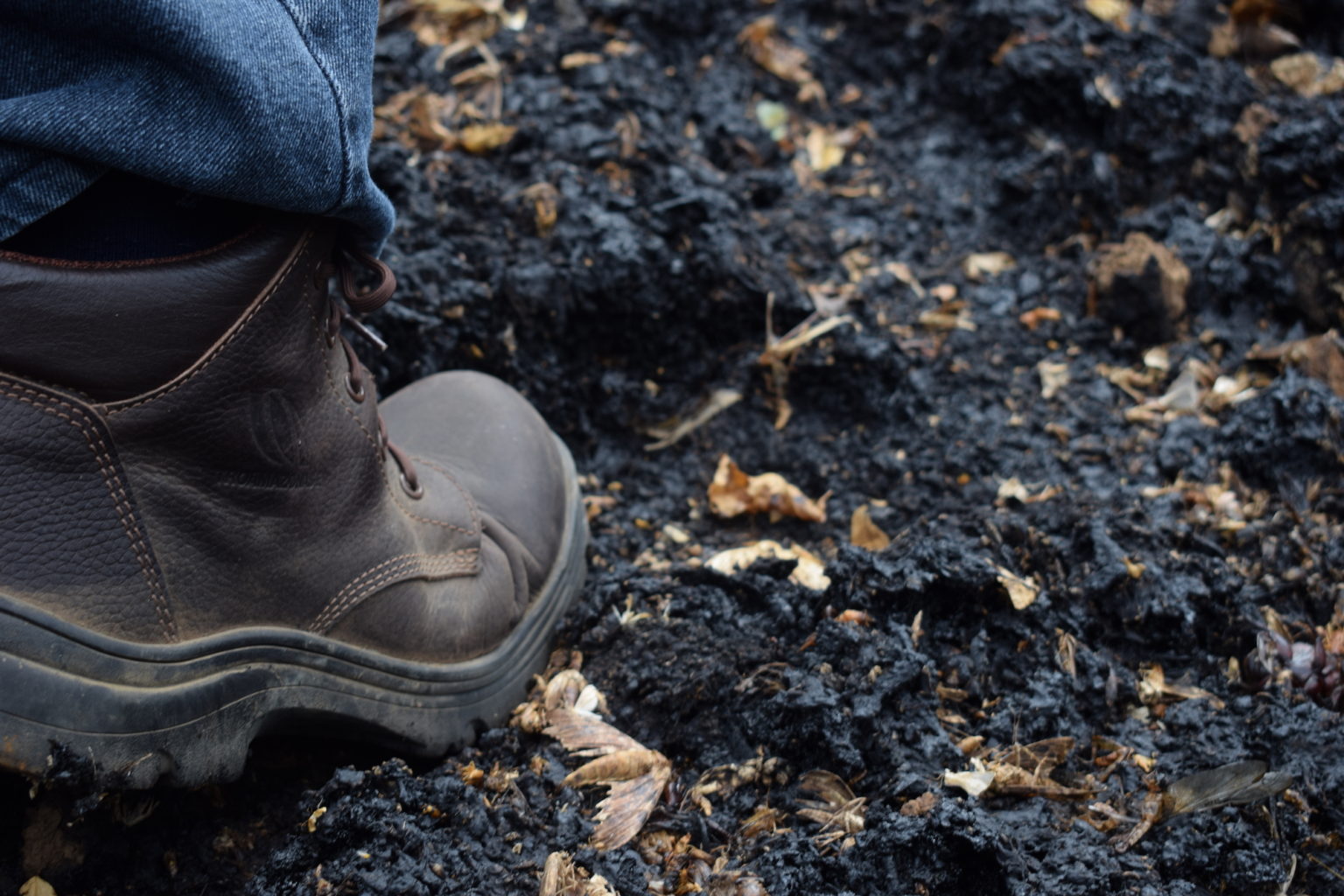
Ruling requires oil companies to change their procedures and standards to make them clean and safe
“This ruling is historic because it recognises the violation of several rights: health, nature and a healthy environment,” says María Espinosa, a lawyer with the NGO Amazon Frontlines. “And it recognises that the Ecuadoran state has also systematically violated international obligations, in this case, in the fight against climate change. It requires oil companies to change their procedures and standards to make them clean and safe.”
“What we want is to shut down the 447 flares currently burning gas. Getting rid of them requires new alternatives, which were considered in the petition. The gas could be allocated for domestic use, taken advantage of for power generation in oil facilities or re-injected,” Espinosa says.
The communities say they hope another hearing will follow to determine how affected residents of Sucumbíos and Orellana will be compensated. And Espinosa says she hopes reparations will be accompanied by health care for more than 250 people who are currently suffering from cancer and who were part of the research carried out by UDAPT and Clínica Ambiental.
Source: Mongabay
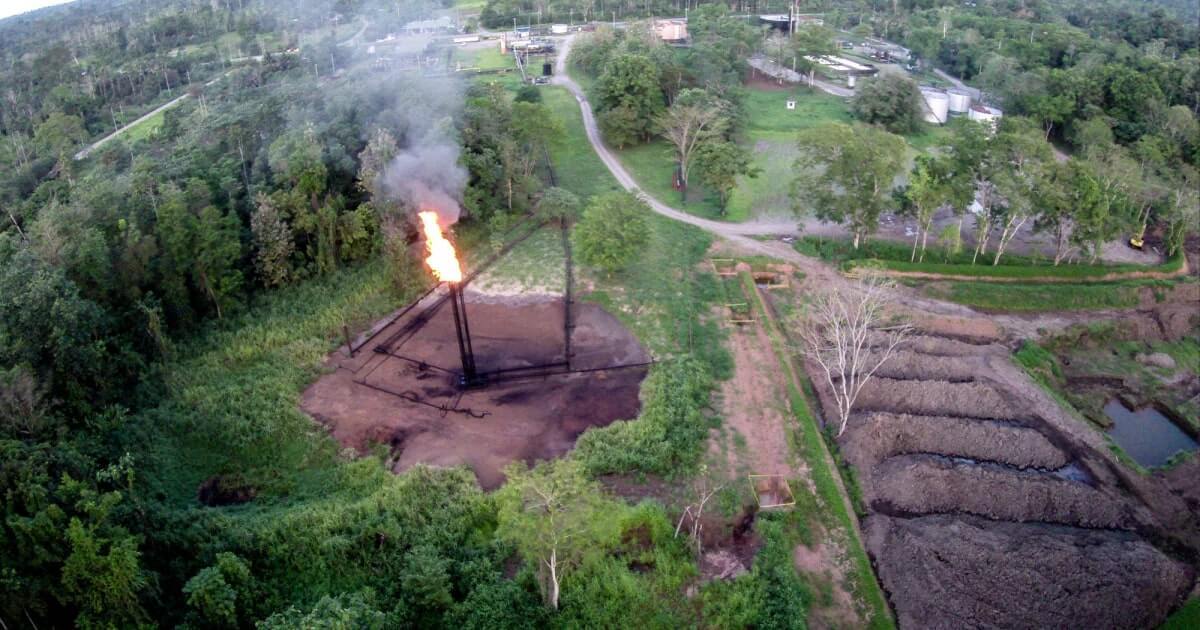
eliminating flaring would cut Ecuador’s greenhouse gas emissions by at least 24%
The girls, their relatives and the lawyers say this decision from the court will bring benefits in terms of health, the environment and even the economy. Espinosa says the ending of flaring will reduce the incidence of diseases such as cancer that are associated with the burning of gas. That decrease will in turn reduce pressure on already stretched health care services in the Amazon.
Fajardo says that each year, the Ecuadoran state spends more than $600 million on gas imports. “Flares burn more gas in a year than the needs of the entire country, and we could take advantage of this,” he says.
In their decision, the judges also noted that eliminating flaring would cut Ecuador’s greenhouse gas emissions by at least 24%.
Source: Mongabay
